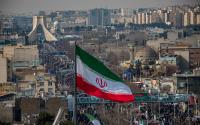3 January 2006PlanetarkEmma Ross-Thomas
Spain suffered its worst drought since records began this year and the National Meteorological Institute (INM) says the drought persisted in the first quarter of the new water year, which runs from September to August.
"The forecasts, at least what we can see in the next month or two...do not allow us to foresee a situation in which it rains as much as is necessary to solve this," Angel Rivera, the INM's director of forecasting, told Reuters.
Spain announced new water management measures on Friday, including construction of a new desalination plant in the parched southeast, as Deputy Prime Minister Maria Teresa Fernandez de la Vega said a second year of drought was likely.
Spain's last severe drought lasted about five years in the 1990s and meteorologist Rivera said that was the norm.
"They are usually cycles of three, four, five years, but that is the statistical model and it doesn't mean they always have to be like that," he said.
Spain's cereal crop was devastated by this year's drought, while hydroelectric power generation - one of the cheapest and cleanest ways of producing electricity - fell to its lowest level in 48 years, according to grid data.
For this crop year, the regional government of sun-baked Andalusia has already taken measures to help farmers face the drought. Farmers can leave 50 percent of their land fallow and still claim subsidies - the same amount as last year, but up sharply from the 10 percent set aside in good years.
"People are fearing the worst, that they are not going to be able to sow crops that need a lot of water...for example cotton and maize," said Ramon Garcia, crop analyst with farmers union COAG.
Between September and December Spain had even less than in the same quarter last year, when the drought began, so the water deficit - which stood at about a third of the country's average annual rainfall - grew slightly.
Most of Spain's rainfall is prompted by Atlantic storms but there have been very few over the past year, Rivera said. With such scarce rainfall, Spain's water reserves stand at just 45 percent of capacity, recent Environment Ministry data show.






